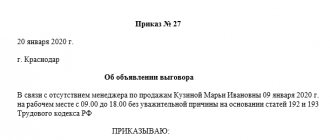In Moscow, an on-site audit of a company in almost 100% of cases ends in the initiation of a criminal case for a tax crime against the director. Why is this happening?
Starting around 2021 in Moscow, all materials based on the results of on-site tax audits are sent to the Main Investigation Department of the Investigative Committee for Moscow. The State Tax Administration analyzes the results of the on-site tax audit. After this, they give specific instructions on initiating a criminal case, carrying out the necessary investigative actions, the timing of their implementation, and send all materials to the investigative committees for the districts of Moscow.
Of course, district investigators report to their superiors from the Main Investigation Department and initiate criminal cases. Thus, local investigators are deprived of the procedural opportunity to refuse to initiate a criminal case.
Note that from October 2014 to 2021 the situation was different: investigators much more often decided not to initiate criminal proceedings under tax articles.
For what and for how long can directors be imprisoned?
| Article | Amount of unpaid taxes for three years | |
| Large size | Extra large size | |
| Tax evasion by an individual (198 of the Criminal Code of the Russian Federation) | More than 900,000 rubles, provided that this represents more than 10% of the taxes payable. Or over 2 million 700 thousand rubles. Punishment: imprisonment for up to one year | More than 4 million 500 thousand rubles, provided that this is more than 20% of the taxes payable. Or more than 13 million 500 thousand rubles. Punishment: imprisonment for up to three years |
| Tax evasion by an organization (Article 199 of the Criminal Code of the Russian Federation) | More than 5 million rubles, provided that this is more than 25% of the taxes payable. Or more than 15 million rubles. Punishment: imprisonment for up to two years | More than 15 million rubles, provided that this exceeds 50% of the taxes payable. Or more than 45 million rubles. Punishment: imprisonment for up to six years |
| Failure to fulfill the duties of a tax agent (Article 199.1 of the Criminal Code of the Russian Federation) | More than 5 million rubles, provided that this is more than 25% of taxes or fees. Or more than 15 million rubles. Punishment: imprisonment for up to three years | More than 15 million rubles, provided that this exceeds 50% of the amount of taxes or fees. Or 45 million rubles. Punishment: imprisonment for up to three years |
| Concealment of money or property at the expense of which taxes should be collected (Article 199.2 of the Criminal Code) | More than 2.25 million rubles. | More than 9 million rubles. |
| Evasion of an individual insurer from paying insurance premiums (Article 199.3 of the Criminal Code) | More than 600 thousand rubles, provided that this is more than 10% of the insurance premiums payable. Or 1 million 800 thousand rubles. | More than 3 million rubles, provided that this is more than 20% of the amount of insurance premiums payable. Or 9 million rubles. |
| Evasion of the organization's insurer from paying insurance premiums (Article 199.4 of the Criminal Code) | More than 2 million rubles, provided that this is more than 10% of the insurance premiums payable. Or more than 6 million rubles. | More than 10 million rubles, provided that this is more than 20% of the insurance premiums payable. Or more than 30 million rubles. |
This is an exhaustive list of tax structures in the Criminal Code of the Russian Federation. However, the directors of the company can be prosecuted not only under these articles, but also under Article 159 of the Criminal Code “Fraud”.
Fraud is charged, for example, when refunding VAT from the budget if this refund was declared illegal.
Limits of financial liability.
Labor legislation gives the right to the employer (founder), taking into account the specific circumstances in which the damage was caused, to fully or partially refuse to recover it from the guilty head of the institution (Article 240 of the Labor Code of the Russian Federation). It turns out that the founder has the opportunity to “pity” the head of the institution. However, in the opinion of the Ministry of Finance, expressed in Letter No. 03-04-05/28925 dated June 17, 2014, the employer’s refusal to recover the damage caused from the guilty employee leads to the employee’s income (economic benefit) received in kind, subject to taxation Personal income tax.
As for the limits of financial liability, it can be limited or full. As a general rule, limited financial liability of the head of the institution is applied - the employer recovers from the employee an amount within the limits of his average monthly earnings, which is calculated according to the rules established by federal legislation[2]. However, in relation to the head of an organization (state, municipal institution), only full financial liability of the head is provided (Article 277 of the Labor Code of the Russian Federation).
How exactly are tax crimes committed?
Article 199 of the Criminal Code specifies exactly how companies evade paying taxes:
- They do not provide tax returns, calculations or other documents that they must provide in accordance with the Tax Code of the Russian Federation.
- Include knowingly false information in a tax return or calculation.
What are other documents? These are extracts from the sales book, from the book of income, expenses and business transactions, calculations of advance payments, annual reports on the activities of a foreign organization, documents confirming the right to tax benefits.
What is knowingly false information? For example, if a company performs any work on its own, but indicates in the primary documents that this work was performed by a counterparty. This means that the company can deduct VAT and take expenses into account when calculating corporate income tax. This is deliberately false information.
What is subsidiary liability
An acquaintance called me and immediately asked me point-blank: “I’m going to become the CEO of a rather large company, should I divorce my wife?”
The essence of the problem: he is afraid of possible claims based on the results of his work, especially subsidiary liability to creditors, if something goes wrong in the business. According to his estimates, six months of decline in business - his future place of work - is + 20 million rubles. additional creditor. And if the company goes bankrupt, then the loss of everything that has been acquired: an apartment, a car and prospects for the future. Divorcing your wife is one way to preserve personal property. I’ll tell you what conclusions we came to at the end of the article.
Vicarious liability is the obligation of a third party to compensate the balance of the debt for which the main debtor did not have enough money. The possibility of such liability is established by Art. 399 of the Civil Code of the Russian Federation.
Civil Code of the Russian Federation. Article 399. Vicarious liability
1. Before making claims against a person who, in accordance with the law, other legal acts or terms of the obligation, is liable in addition to the liability of another person who is the main debtor (subsidiary liability), the creditor must make a claim against the main debtor.
If the principal debtor refused to satisfy the creditor's claim or the creditor did not receive a response from him to the presented demand within a reasonable time, this demand may be presented to the person bearing subsidiary liability.
In relation to company managers, this is liability for incorrect actions that damage the interests of third parties, most often owners (shareholders, participants) and creditors.
Today, people are most often brought to subsidiary liability as part of bankruptcy procedures.
Law “On Insolvency (Bankruptcy)”
Article 61.11. Vicarious liability for the inability to fully repay creditors' claims.
1. If full repayment of creditors’ claims is impossible due to the actions and (or) inaction of the person controlling the debtor, such person shall bear subsidiary liability for the obligations of the debtor.
Record for the amount of subsidiary liability established by the court in a bankruptcy case in 2018
On December 19, 2021, the Moscow Arbitration Court, in the framework of case A40-1253/2017 on the bankruptcy of Zernovaya LLC, held the former owner and director of the company to subsidiary liability in the amount of 39.6 billion rubles.
Record amount of subsidiary liability established by the court in a bankruptcy case in 2019
On August 22, 2021, in the framework of case A40-133735/2015 on the bankruptcy of BTK CJSC, the Moscow Arbitration Court held the sole founder and general director of the debtor liable for subsidiary liability. The amount of subsidiary liability is 41.5 billion rubles.
How does the tax office detect tax evasion?
During desk and field tax audits. We will not go into these details now. Let's pay attention to the timing. If arrears are identified, inspectors make demands for payment of taxes:
- two months are given to the business to pay upon request from the inspectorate;
- 10 days to transfer information to the investigative committee if the company has not paid the arrears;
- a month to conduct a pre-investigation check and decide whether to initiate a criminal case;
- two months to investigate the criminal case. However, in practice, these deadlines are not observed and the investigation of the case can take six months or a year.
In practice, approximately 2.5–3 years pass from the start of an on-site tax audit to the verdict.
Criminal Kaleidoscope
- The chief accountant was found guilty of tax evasion through shell companies by the verdict of the Stupino City Court of the Moscow Region dated April 5, 2017 in case No. 1-59/2017. Her guilt was proven by circumstantial evidence. In particular, she had unlimited access to the company’s press and constantly used a flash card with a password to maintain the company’s bank account, and SMS notifications about the movement of funds in this account were sent to her personal mobile phone.
In addition, due to her job duties, the chief accountant was aware of the volumes and range of raw materials actually supplied, the actual cost of the products supplied and data on real suppliers. These circumstances together allowed the court to conclude that the defendant had the opportunity to correlate real transactions with those that were formalized only for appearances. This means that in those cases when the chief accountant accepted for payment, carried out accounting and reflected fictitious invoices, contracts and acts in tax returns, she deliberately evaded taxes.
- The appeal ruling of the Moscow City Court dated April 15, 2015 in case No. 10-4640/15 established that during the investigation, emails were found on the computer of the chief accountant, as well as on the company’s servers. These letters were sent to a representative of the company with the help of which the tax base was underestimated. A computer examination confirmed the authenticity of the correspondence. As a result, the accountant’s actions to reflect fictitious transactions under contracts with such a company in declarations were recognized as a criminal offense.
- The verdicts of the Domodedovo City Court of the Moscow Region dated 02/05/2016 in case No. 1-61/2016 (1-754/2015) and the Kolomna City Court of the Moscow Region dated 01/12/2017 in case No. 1-52/B/17 recognized the actions of the company’s management as criminal , which sent letters to counterparties asking them to transfer money owed to the organization directly to suppliers (creditors). The court indicated that such actions in a situation where the organization’s accounts are blocked by the tax authority due to arrears are a crime, liability for which is provided for in Art. 199.2 of the Criminal Code of the Russian Federation.
Alexey Krainev, tax lawyer
For what amount can directors be held criminally liable under a tax article?
Let’s imagine that the company transferred 8 million rubles to a shell company. with VAT for certain services. At the same time, the company:
- counted these 8 million as expenses when calculating income tax;
- applied a deduction from input VAT.
What additional amount will the tax office charge based on the results of a tax audit if it is discovered that the counterparty is a shell company?
- VAT for RUB 1,220,338. (8,000,000/118 * 18). After all, the operation in connection with which the company applied a VAT deduction did not actually take place.
- Income tax - 1,355,932 ((8,000,000 - 1,220,338) * 20%).
- Fine: 1,030,508 - ((1,220,338 + 1,355,932) * 40%). We add up the amount of VAT and income tax paid and subtract 40% from it.
A fine of 40% of unpaid taxes is imposed if the non-payment was intentional - this is a prerequisite for initiating a criminal case. If a company did not pay taxes because the accountant made a mistake or did not know that the company should pay them, then there is no crime.
Documents, distortion or failure to provide which entails subsidiary liability of the manager
To bring persons controlling the debtor to subsidiary liability on the basis of distortion or failure to provide documents, the obligation to maintain and store which is established by law, it is enough to prove any of two circumstances:
- KDL did not ensure the safety or distorted the financial statements and primary documentation of the debtor.
Example:
the reporting does not reflect the debtor’s material assets, primary documents are not transferred, which makes it impossible to collect receivables and challenge suspicious transactions (clause 2, clause 2, article 61.11 of the Law “On Insolvency (Bankruptcy)”. The manager and chief accountant are held liable for subsidiary liability .
- KDL did not ensure the safety or distorted corporate documentation (clause 4, clause 2, article 61.11 of the Law “On Insolvency (Bankruptcy)”.
Example:
the debtor loses or does not provide decisions of the general meeting of participants, minutes of meetings of the board of directors, conclusions of auditors or the audit commission, documents on the issue of securities, etc.
The manager and persons entrusted with the responsibility for maintaining and storing documentation that must be kept (for example, corporate secretary, head of the legal department, etc.) are brought to subsidiary liability.
It should be noted that courts are obliged to investigate the cause-and-effect relationship between the failure to transfer or distortion of documents and the occurrence of losses for creditors.
Often, the debtor's managers present various documents about theft, fire, and flooding as a result of which the accounting documents were lost. In my practice I encountered the following acts:
“The company’s documents were stored in a barn at the dacha; as a result of the spring flood, the documents drowned and cannot be restored.”
“The commission found that the Trojan encoder virus got onto the computer, as a result of which all the files were encrypted; no anti-virus program was installed on the computer. Attempts to recover the files were unsuccessful, so the hard drive was formatted."
Now the court is assessing the measures taken by the manager to restore the lost documentation. There are no measures - there is guilt.
Intent for non-payment is the most important condition for initiating a criminal case against the director
All tax crimes are committed with direct intent. This is when the company's top managers:
- realized that they were not paying taxes, although they were required by law to do so;
- understood that they were breaking the law;
- carried out actions aimed at non-payment of taxes.
What are actions aimed at non-payment of taxes? Creation of one-day companies and subsequent work with them, artificial fragmentation of a business without a business purpose, failure to register some employees as employees so as not to pay insurance premiums for them, and so on.
The Investigative Committee and the Tax Service are faced with the task of proving that taxes were not paid intentionally. In this case, the tax office will be able to impose a fine of 40%, and the Investigative Committee will have the opportunity to initiate a criminal case. How is intent proven in practice? Using the procedures described in the Code of Criminal Procedure and the Tax Code, such as:
- taking testimony;
- search of the office;
- notch;
- requesting documents from the company itself and its counterparties;
- requests to the bank;
- conducting financial and accounting examinations.
A classic example: the tax office or investigators seized the company’s computer and found documentation there on behalf of a disputed counterparty. The properties of the file indicate that it was compiled by employees of the company being audited, which means that the counterparty is fictitious and taxes were not paid intentionally. After all, fictitious document flow is created only intentionally.
Back in 2021, the Tax Service and the Investigative Committee issued a joint letter dedicated to proving intent to commit a tax crime.
Splitting up
Take for example the widespread practice of store splitting. The large area is divided into several departments of less than 150 m2. Department managers register as entrepreneurs and register their trade through UTII, rent department space and sell goods, for example, under a guarantee agreement. How to identify such abuses, tax authorities interrogate employees of “fragmented” organizations, who often do not know that they do not work for the main company. And if they do know, then the head of the main organization is often named as the immediate supervisor, since it is from him that they receive instructions.
To identify patterns of business fragmentation, tax authorities also analyze the following facts through their databases or record on site:
- material resources of companies - fixed assets used, for example warehouses, vehicles, production facilities; usually they are owned by the taxpayer and leased to affiliated companies or individual entrepreneurs;
- facts of acquisition of goods for sale and for their own needs by all persons from the same suppliers on a single application;
- storage of property in common warehouses, accounting for revenue through a single software, joint collection of revenue, opening accounts by the same persons in the same banks;
- single legal address, use of the same premises, personnel, material and technical base;
- preparation of tax and accounting reports by the same persons, joint storage of accounting documents and documents related to financial and economic activities, use of a single IP address, etc.
[email protected] , which analyzes the relevant judicial practice, is also devoted to the issue of business fragmentation
Is the director always liable if the company fails to pay taxes?
No not always.
The director has his own responsibilities, and the chief accountant has his own. If the director is not involved in accounting and, due to his official duties, did not choose contractors who turned out to be dubious, then it is very difficult to accuse him of tax evasion.
The courts take this point into account and examine whose responsibilities include the preparation and submission of declarations, as well as the selection of counterparties.
In our practice, there are cases when the tax office came with an on-site audit to a company and assessed an additional amount of more than 50 million rubles. A criminal case was opened against the director under Part 2 of Article 199 of the Criminal Code of the Russian Federation. The reason is the company’s connection with shell companies, which is why, according to investigators and the tax office, the taxpayer did not pay additional taxes.
However, we managed to prove that the director was not guilty and got the criminal case dismissed. Previously, he had already contacted us for comprehensive director protection services, thanks to which the company had:
- Regulations on contractual work.
- Due diligence clause.
- Regulations on the selection of counterparties and other documents.
In our case, the director did not select counterparties. He had contact only with counterparties-customers, and not with suppliers. Suppliers were searched and verified by other company employees. Therefore, the director could not bear any responsibility for the fact that some contractors turned out to be dubious.
Liability for culpable damage to the company
Subject: heads of the organization (individuals and members of a collegial body)
Liability: damages
What is provided for: Art. 53.1 Civil Code of the Russian Federation, art. 44 Federal Law “On LLC”, art. 71 Federal Law “On JSC”.
It is quite logical that the executive body of the Company, be it a director, president, manager or member of the board, is obliged to act in good faith and wisely in the interests of the company it heads (as required by the relevant laws - “On LLC” and “On JSC”). In the event that, by violating these principles and taking advantage of his position, he causes damage to the organization: for example, he enters into a transaction in violation of the interests of the owners (Resolution of the Volga District Arbitration Court dated March 19, 2021 in case No. A65-6274/2019) and/or bypassing mandatory procedure for its coordination with them (Resolution of the Arbitration Court of the Central District of March 19, 2021 in case No. A14-3607/2018), which turned out to be disadvantageous for the company - the damage caused can be recovered from it. And in full size.
Who can demand compensation for damages from a “bad” director? A new director on behalf of the company, for example. Or the founders (participants, shareholders) of the company.
However, doubts about the legality of the transaction are not enough. It is presumed that the director acted in good faith (Decision of the Supreme Court of the Russian Federation dated April 10, 2021 No. 303-ES15-17925), and business decisions were made in the interests of the company. Therefore, it is necessary to prove in court that damage was caused. This is possible if the director’s actions include a combination of circumstances: illegal behavior, presence of losses, and a causal link between illegal behavior and losses.
Tax officials stopped looking for one-day scams. Their focus shifted to fragmentation. How to avoid suspicion and do everything legally - our free webinar.
A reasonable question arises: where to draw the line between business risks and illegal behavior? The answer to the question was formulated long ago by the Plenum of the Supreme Arbitration Court of the Russian Federation in Resolution No. 62 of July 30, 2013. The positions from the Resolution are still used in disputes (Resolution of the Arbitration Court of the North-Western District of March 9, 2021 in case No. A44-530 /2015, Resolution of the Arbitration Court of the North-Western District dated April 29, 2021 in case No. A56-29799/2020).
from the said Resolution...
"P. 2 The dishonesty of the director’s actions (inaction) is considered proven, in particular, when the director:
1) acted in the presence of a conflict between his personal interests (the interests of the director’s affiliates) and the interests of the legal entity, including if the director had an actual interest in the legal entity completing a transaction, except in cases where information about the conflict of interest was disclosed in advance and the actions of the director were approved in accordance with the procedure established by law;
2) hid information about the transaction he completed from the participants of the legal entity (in particular, if information about such a transaction, in violation of the law, charter or internal documents of the legal entity, was not included in the reporting of the legal entity) or provided the participants of the legal entity with false information regarding the relevant transaction ;
3) made a transaction without the approval of the relevant bodies of the legal entity required by law or the charter;
4) after termination of his powers, withholds and avoids transferring to the legal entity documents relating to circumstances that entailed adverse consequences for the legal entity;
5) knew or should have known that his actions (inaction) at the time of their commission were not in the interests of the legal entity, for example, he made a transaction (voted for its approval) on conditions that were obviously unfavorable for the legal entity or with a person who was obviously unable to fulfill the obligation (“a fly-by-night company”, etc.)….
clause 3. The unreasonableness of the director’s actions (inaction) is considered proven, in particular when the director:
1) made a decision without taking into account information known to him that is relevant in a given situation;
2) before making a decision, did not take actions aimed at obtaining the necessary and sufficient information for its adoption, which are usual for business practice under similar circumstances, in particular, if it is proven that, under the existing circumstances, a reasonable director would postpone making a decision until additional information is received;
3) completed a transaction without observing the internal procedures usually required or accepted in a given legal entity for carrying out similar transactions (for example, coordination with the legal department, accounting department, etc.).“
The very fact of unprofitability of activities or other negative consequences, of course, is not evidence of unreasonableness and/or dishonesty of the director’s actions, since they may be a consequence of an unfavorable economic situation and other external factors. The risky nature of entrepreneurial activity has not been canceled, and therefore, it will not be possible to assign the entrepreneurial risks of the founders to the director. However, we can assume that the practice has developed.
What to do if a criminal tax case has already been initiated against the director?
If a criminal case has already been initiated, then it is necessary to involve experienced lawyers specializing in taxes to protect your interests. They are the ones who must analyze the situation, assess the risks and work out further tactics and line of defense.
To do this, witnesses may be questioned, documents may be presented, including those confirming the reality of the transaction, due diligence and commercial diligence may be exercised, a financial analysis of the results of controversial transactions may be carried out, and procedural grounds may be used to deem a number of evidence inadmissible. As practice shows, these actions can only be carried out by a lawyer practicing in this area.
How to protect yourself
It is important to remember that the criminal liability of the former director is just as relevant as the criminal liability of the current director. Quick dismissal from a position does not relieve responsibility for crimes committed, so you need to be careful and study in detail not only the Criminal Code, but also all regulations and laws that relate to labor legislation, environmental requirements and other important areas.
It is also important to remember that some of the violations that were made by the previous director may affect the manager who has just taken office. That is why he needs to protect himself by following certain rules.
It is necessary that the current employee be handed over the cases officially, and for this purpose a commission is convened to transfer the cases. The list of transferred documentation must include all statutory documents, reporting, licenses, and accounting. The director must also obtain information about all banking affairs and conduct an audit of all existing agreements with partners and clients. The director must also be aware of existing loans and debts. Well? and we must not forget about making changes to the Unified State Register of Legal Entities and informing all counterparties about taking office.







